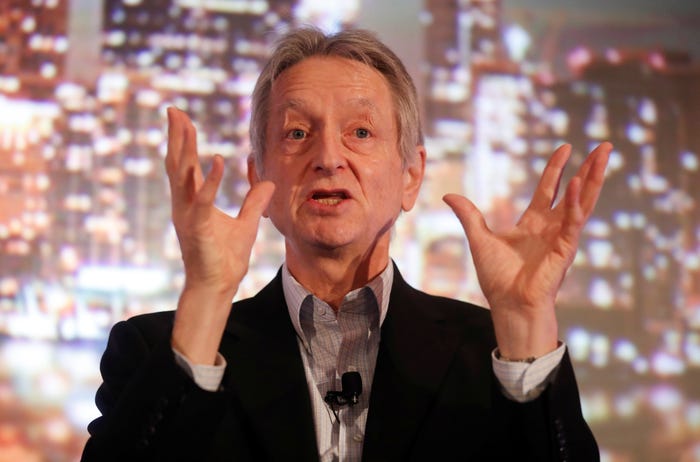Geoffrey Hinton Reveals AI-Powered Breakup Story, Sparks Debate

BREAKING: Geoffrey Hinton, renowned as the “godfather of AI,” shared a shocking personal experience where his girlfriend utilized a chatbot to deliver a breakup critique. This revelation comes just days after he was awarded the 2024 Nobel Prize in Physics for his groundbreaking advancements in machine learning.
In a candid interview with the Financial Times on March 29, 2024, Hinton explained how his ex-partner employed ChatGPT to articulate her grievances about his behavior. “She got the chatbot to explain how awful my behaviour was and gave it to me,” he disclosed, adding that the AI-generated critique did not resonate with him. “I didn’t think I had been a rat, so it didn’t make me feel too bad. I met somebody I liked more, you know how it goes.”
This incident underscores a striking reality: AI technologies are increasingly infiltrating personal relationships, reshaping how we communicate in intimate settings. Chatbots are no longer confined to corporate environments; they are now making their mark on our emotional lives.
Earlier this year, research from OpenAI and MIT Media Lab indicated troubling implications of AI on human interactions. Their analysis of millions of conversations revealed that heavy users of ChatGPT may actually experience heightened feelings of loneliness. The researchers noted that a small group of users contributes to a significant share of emotional exchanges, suggesting a dependency on AI for social cues.
As AI becomes a go-to for navigating complex emotional situations, OpenAI has begun revising how ChatGPT interacts with users facing personal dilemmas. In August 2023, the organization stated, “When you ask something like ‘Should I break up with my boyfriend?’ ChatGPT shouldn’t give you an answer. It should help you think it through—asking questions, weighing pros and cons.” This shift aims to foster healthier interactions with the technology, particularly in high-stakes personal scenarios.
The implications of Hinton’s experience are profound. As AI tools gain traction in everyday life, the lines between human and machine communication blur. This raises essential questions about emotional well-being, dependency on technology, and the evolving nature of relationships.
In the wake of Hinton’s story, discussions are ramping up about the role of AI in personal matters. As more individuals turn to chatbots for advice, the need to understand the emotional impact of such interactions becomes increasingly urgent.
As the conversation around AI and personal relationships continues to unfold, many will be watching closely to see how these technologies evolve and what new guidance emerges from organizations like OpenAI.
Stay tuned for more updates on this developing story as we explore the intersection of technology and human connection.






